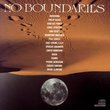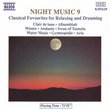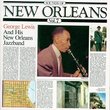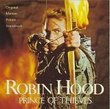| All Artists: Philip Glass, Dennis Russell Davies, The Stuttgart State Opera Orchestra & Chorus Title: Akhnaten Members Wishing: 5 Total Copies: 0 Label: Sony Release Date: 10/25/1990 Genres: Dance & Electronic, International Music, Jazz, Classical Styles: Techno, Opera & Classical Vocal, Historical Periods, Modern, 20th, & 21st Century Number of Discs: 2 SwapaCD Credits: 2 UPCs: 074644245721, 5099704245720, 5099708797423 |
Search - Philip Glass, Dennis Russell Davies, The Stuttgart State Opera Orchestra & Chorus :: Akhnaten
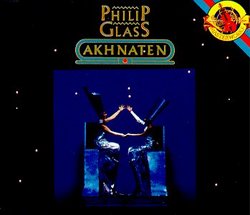 | Philip Glass, Dennis Russell Davies, The Stuttgart State Opera Orchestra & Chorus Akhnaten Genres: Dance & Electronic, International Music, Jazz, Classical
|
Larger Image |
CD DetailsSimilar CDs
Similarly Requested CDs
|
CD ReviewsA Modern Masterpiece Allen Ruch | Brooklyn, NY USA | 02/18/2000 (5 out of 5 stars) "Akhnaten is a modern masterpiece in every way, and deserves a place in the standard repertory. Forgoing conventional narrative structure, this opera explores the controversial reign of Akhnaten through various tableau showing the Pharaoh overthrowing the religious establishment and founding a new order based on Atenism, and early form of monotheism.Glass also explores both the controversial Oedipal and incestuous dimensions of the Pharaoh's rule, depicting his decay into a state of undifferentiated "familial" bliss using a vocalese-based musical language charged with pure emotion. Indeed, the whole opera uses music and langauge in amazing new ways, underscoring complex states of psychological being and various power relationships by contrasting languages and vocalese as well as intricate musical plotting. The fact that Akhnaten is scored for a countertenor is a stroke of genuis in itself, highlighting his almost alien nature as well as sexually controversial personality.This opera hits at a primal level, and I cannot recommend this recording more highly. So many moments are charged with beauty, mystery, and power: the thundering funeral scene, the heartbreaking countertenor/soprano/contralto trio in the famous "Window of Appearances," the glorious Hymn to the Sun, the eerily beautiful "Family Scene," the climactic fall of Akhnaten.... simply wonderful. I also recommend John Richardson's book about the opera, "Singing Archeology." Though somewhat overly academic in tone, it provides an invaluable key for understanding this incredible work. I applaud both the Boston Lyric Opera and the Chicago Lyric Opera for bringing it back to American opera houses." As expansive and charismatic as ancient Egypt itself Bret D. Whissel | Tallahassee, FL United States | 02/03/1999 (5 out of 5 stars) "In Akhnaten, Philip Glass captures the essence of ancient Egyptian culture as perceived by Westerners. Much of Glass's work, of which this is a supreme example, conveys impressions to my mind without any conscious recollection of how they got there. The sheer weight of the music, implied by the brassy orchestration and methodical, relentless development, leads me to think of massive granite construction. In contrast, the other-worldly quality of the counter-tenor seems the perfect representation of the spiritually enlightened pharaoh who converts all of Egypt, though briefly, to monotheism. However, the internal, reclusive nature of this king, reflected in the hypnotic repetition typical of Glass, allows him to neglect the needs of the state to seek personal fulfillment through love and family. In the end, little is left to remind us of Akhnaten's existence as we're brought forward 3000 years to the present in the closing guidebook narration. It is the marriage of stone and spirit in this work that convinces me that Akhnaten lived, and that Egypt possessed a culture of immense proportions. And as the dream fades, I'm left with vivid impressions and a yearning to see what ancient Egypt might have been like in its cultural prime.The discs are well-recorded, with the orchestra, large chorus, and soloists in excellent balance throughout. Of the three operas ("Einstein on the Beach" and "Satyagraha" are the predecessors), this one seems the most polished, and would probably be the best choice for those familiar with Glass from more accessible recordings, such as "Songs from Liquid Days" or "Itapu/The Canyon". In fact, the choral work of "Itapu" is reminiscent of "Akhnaten"." The best of the 'big' Glass operas DAC Crowell | 03/30/2000 (5 out of 5 stars) "This work is generally considered to be part of a trilogy of 'operas', which also includes the Robert Wilson collaboration "Einstein on the Beach" and "Satyagraha". And of these, it and "Satyagraha" are the two which employ more conventional forces; "Einstein..." is more for Glass's ensemble of the mid/late-70s. So of these two 'conventional' Glass operas, I think this is perhaps the better. In here, Glass does a wonderful job of encompassing the possible musical scope and palette which larger forces have to offer. The spectacular 'Funeral of Amenhotep III' scene, for example, is a tour-de-force of what Glass was able to accomplish in these long-form works. Likewise, the subtilty of the vocal writing is something which must be experienced, most notably the skill with which Glass handles the writing for counter-tenor...not necessarily the easiest vocal part to write for! The sad part here, however, is that a mere audio recording does not really convey the sense of spectacle that these works have in a full performance, as the visual components of these operas are perhaps equal in importance with the musical content."
|

 Track Listings (7) - Disc #1
Track Listings (7) - Disc #1